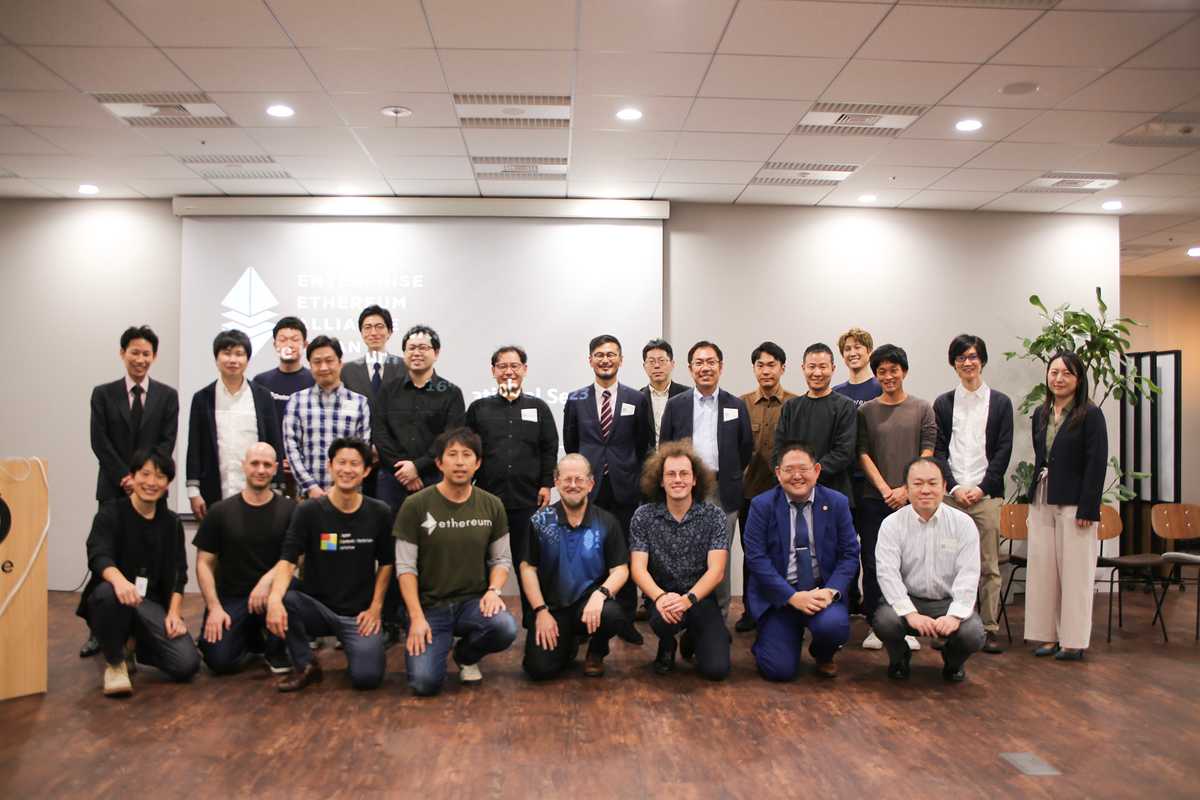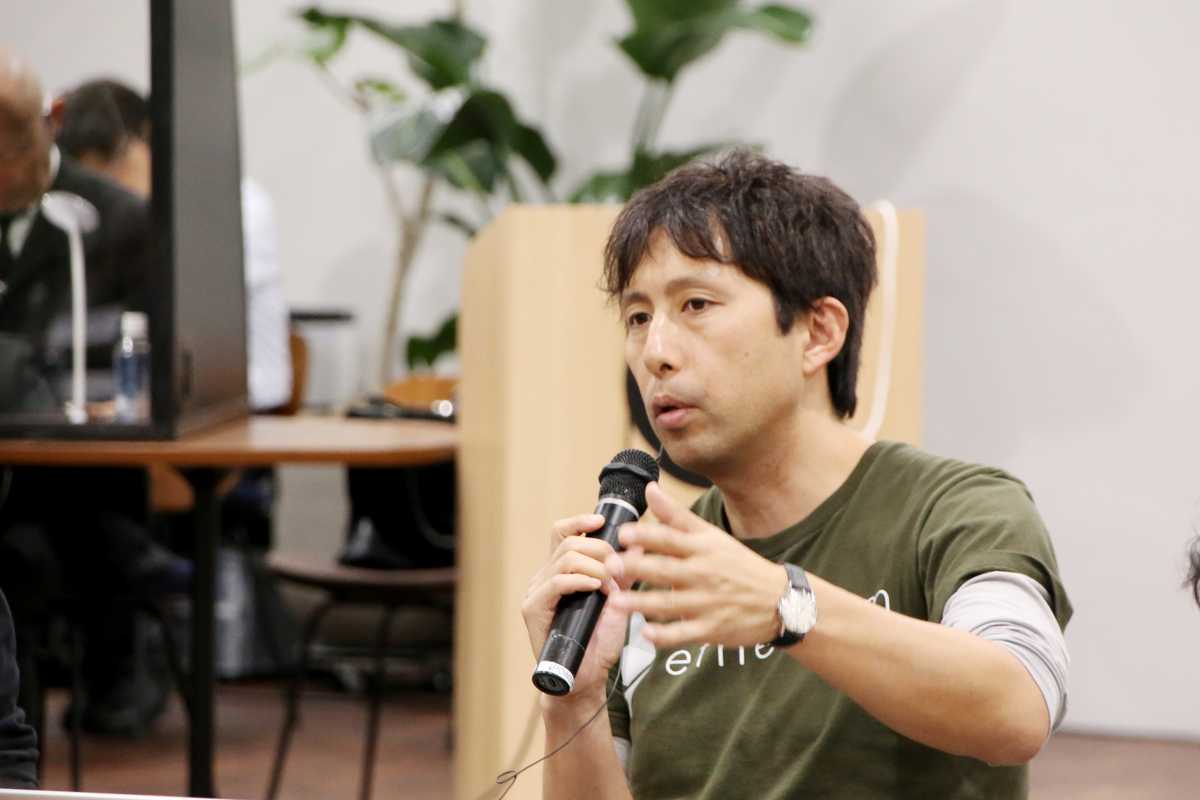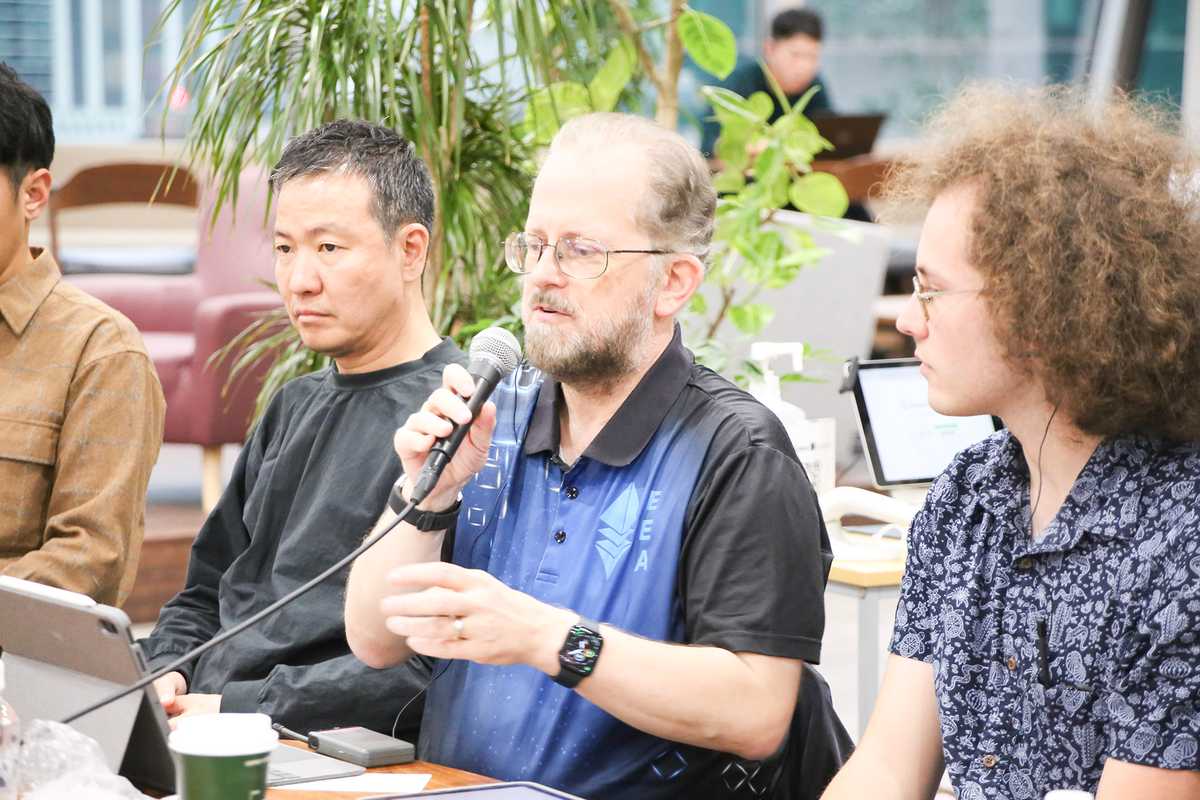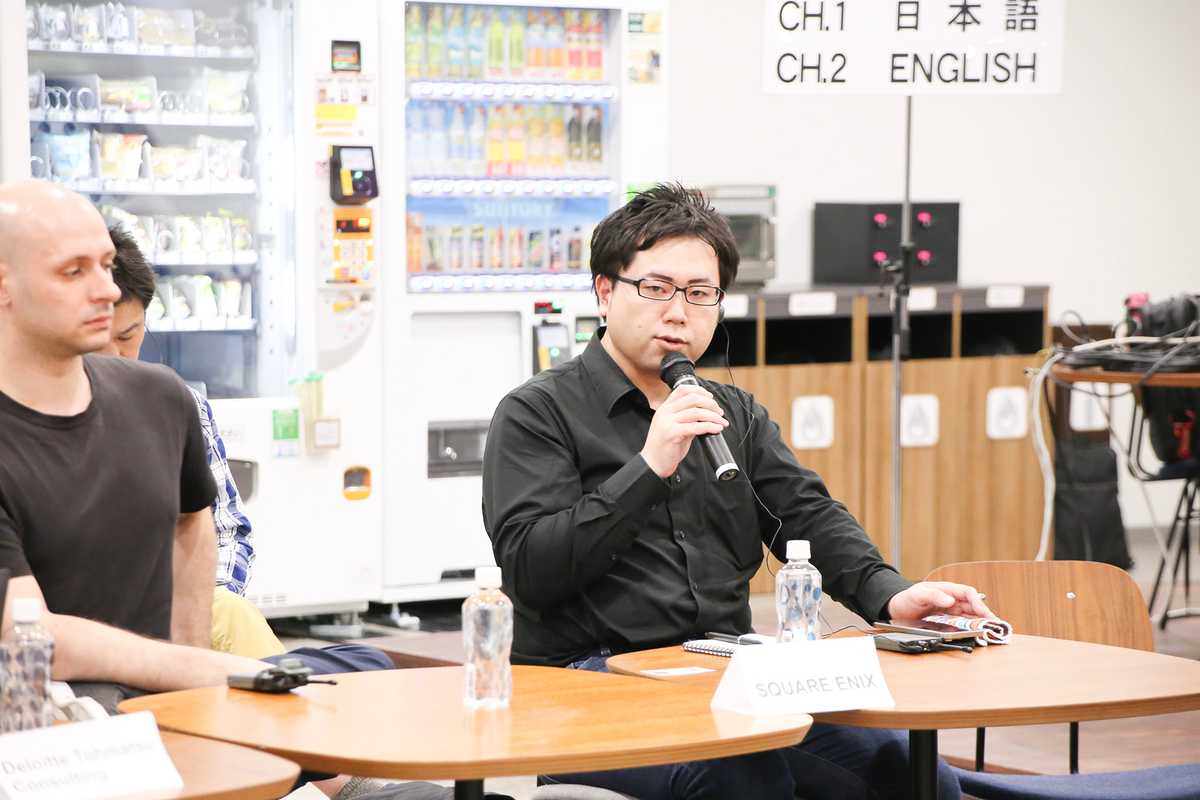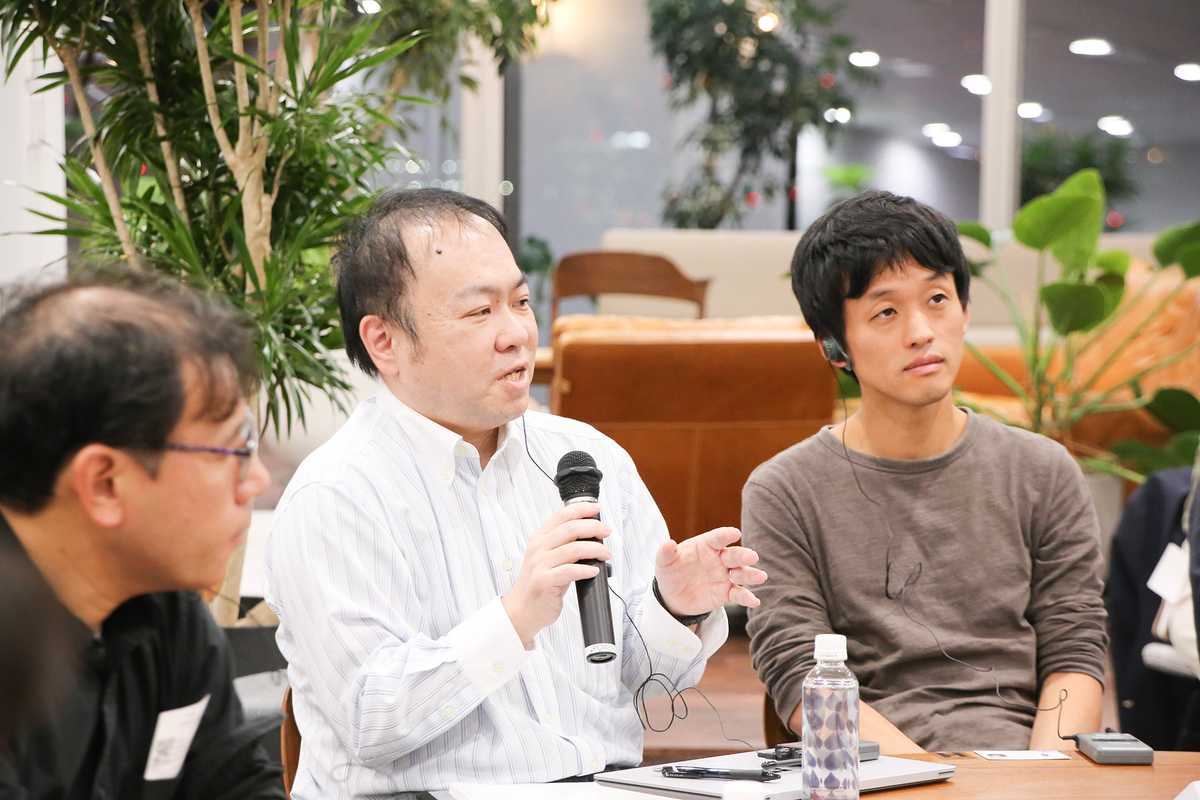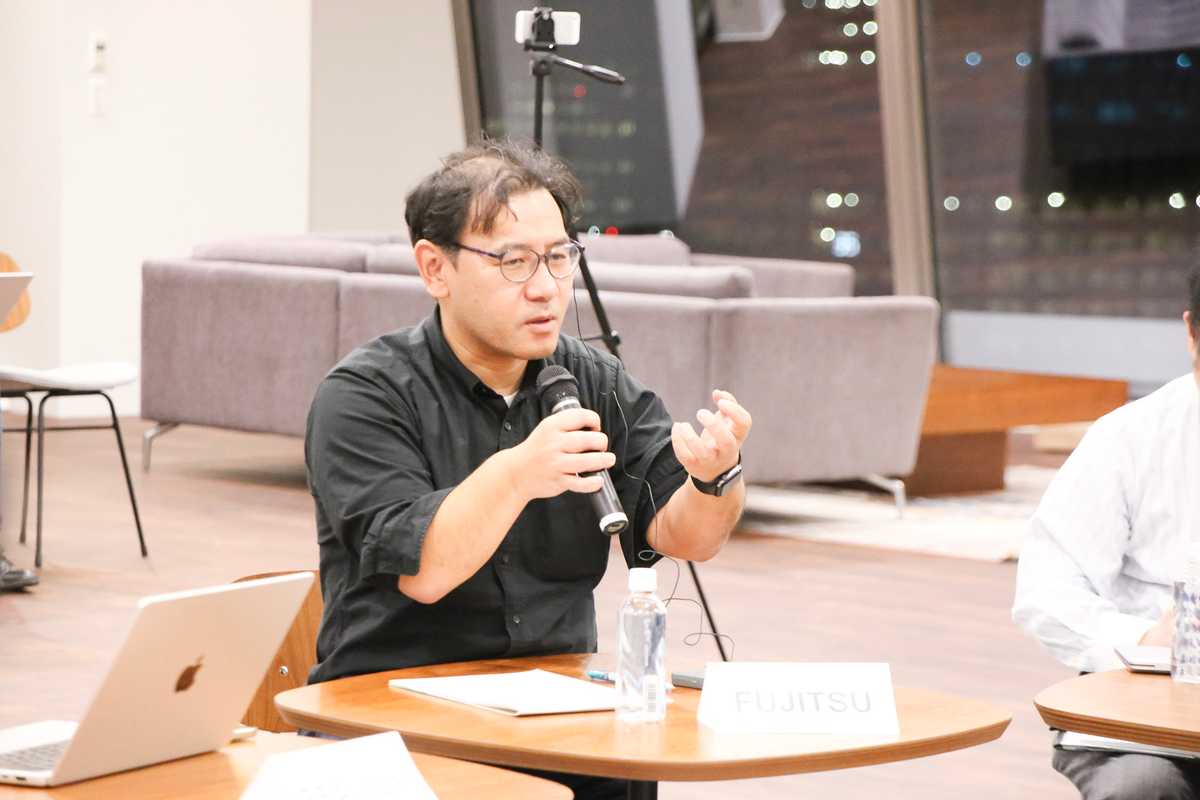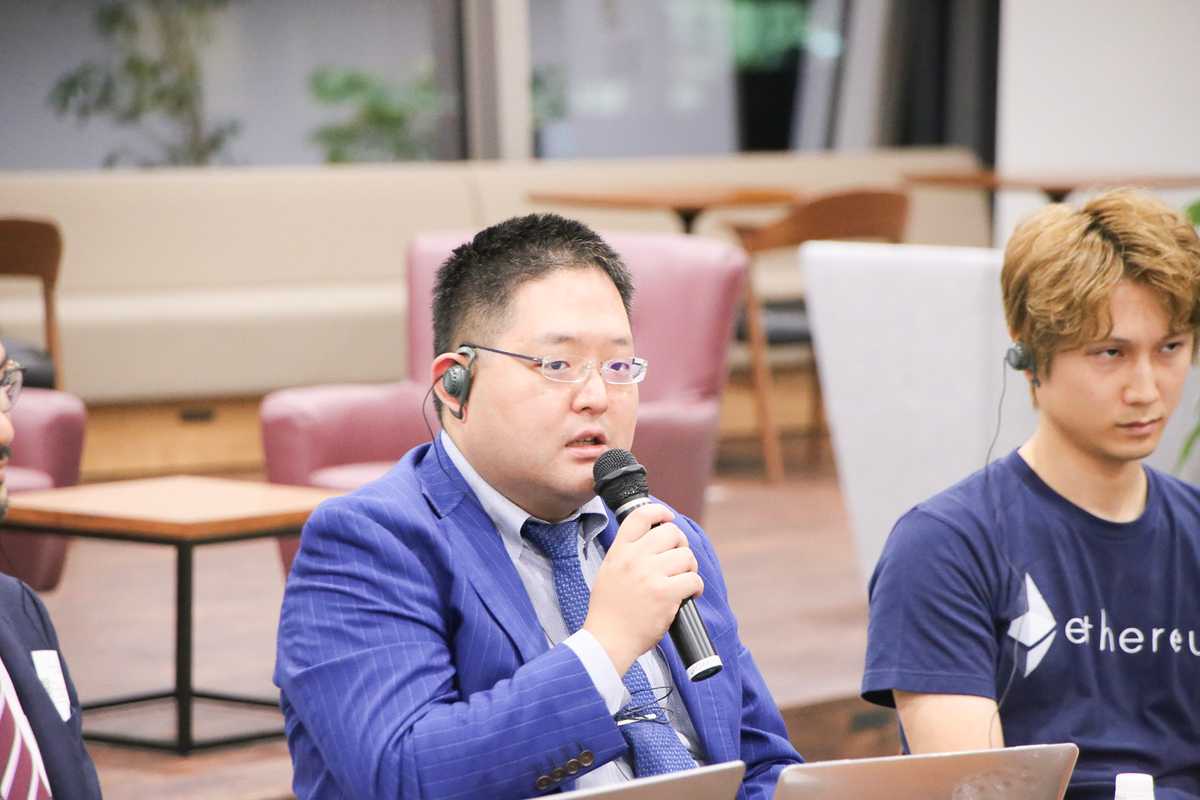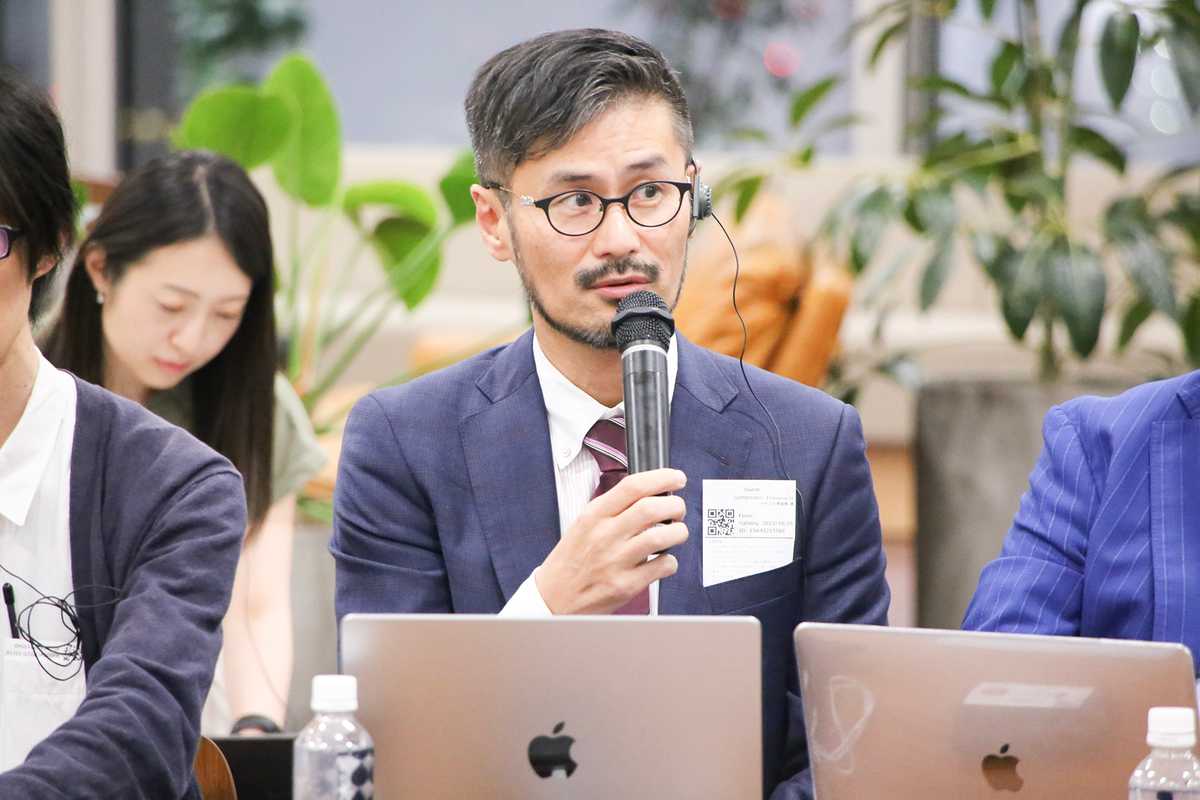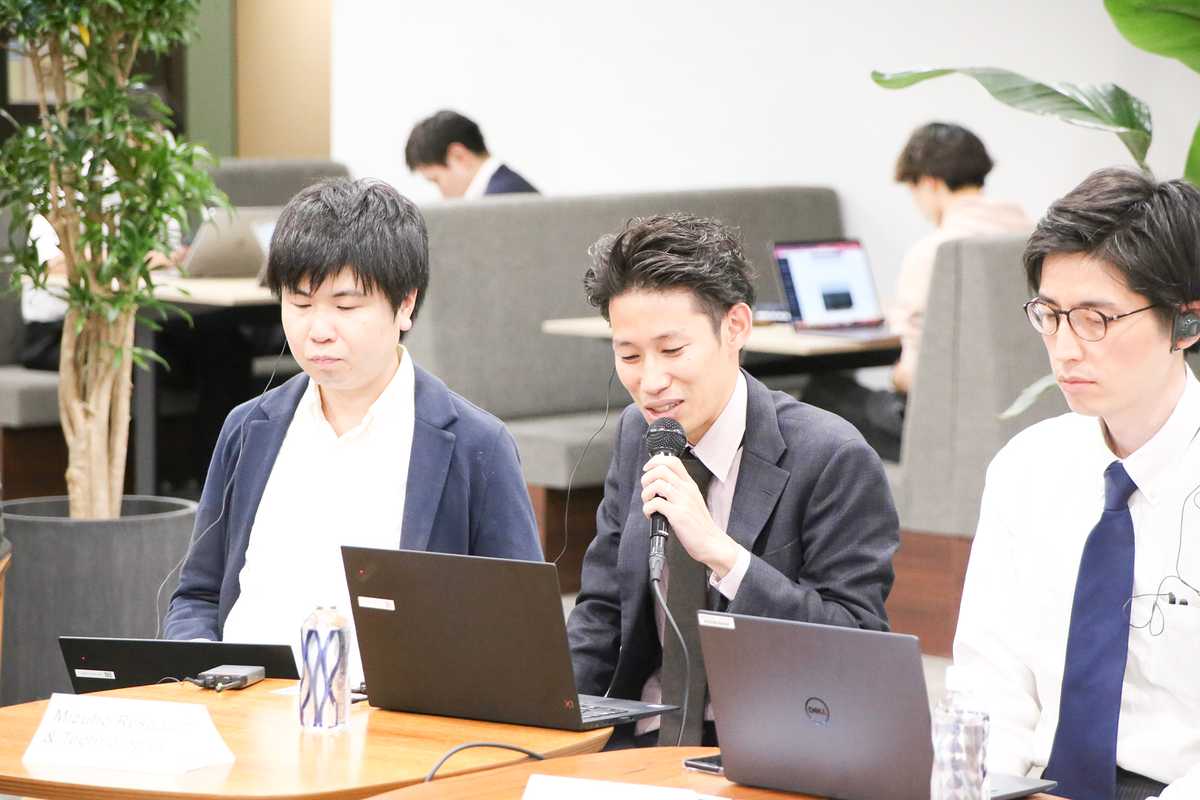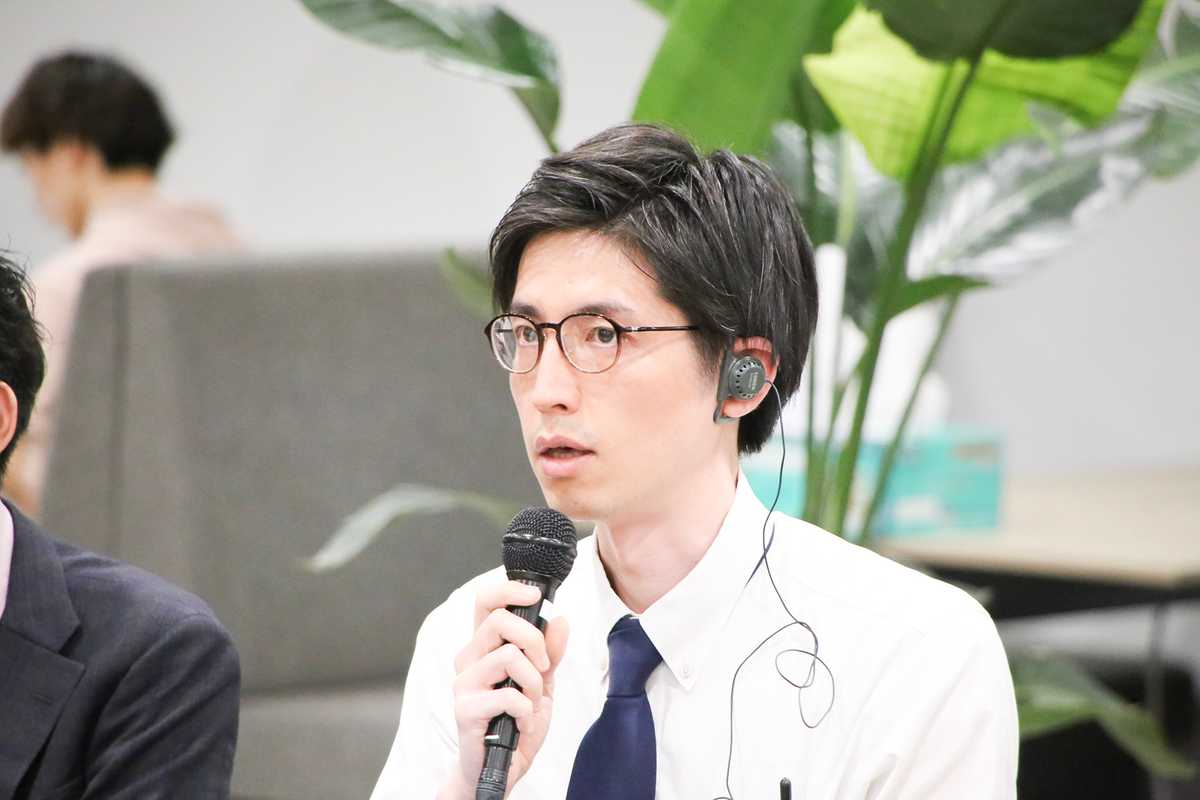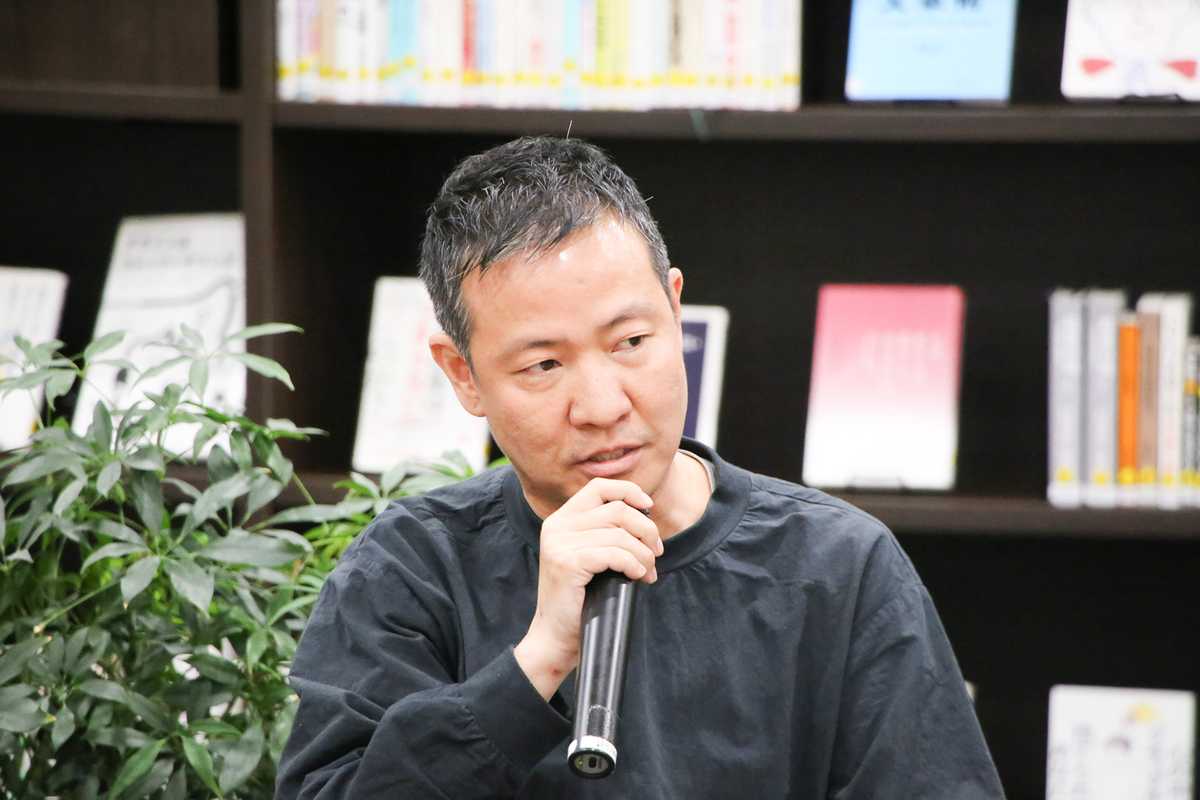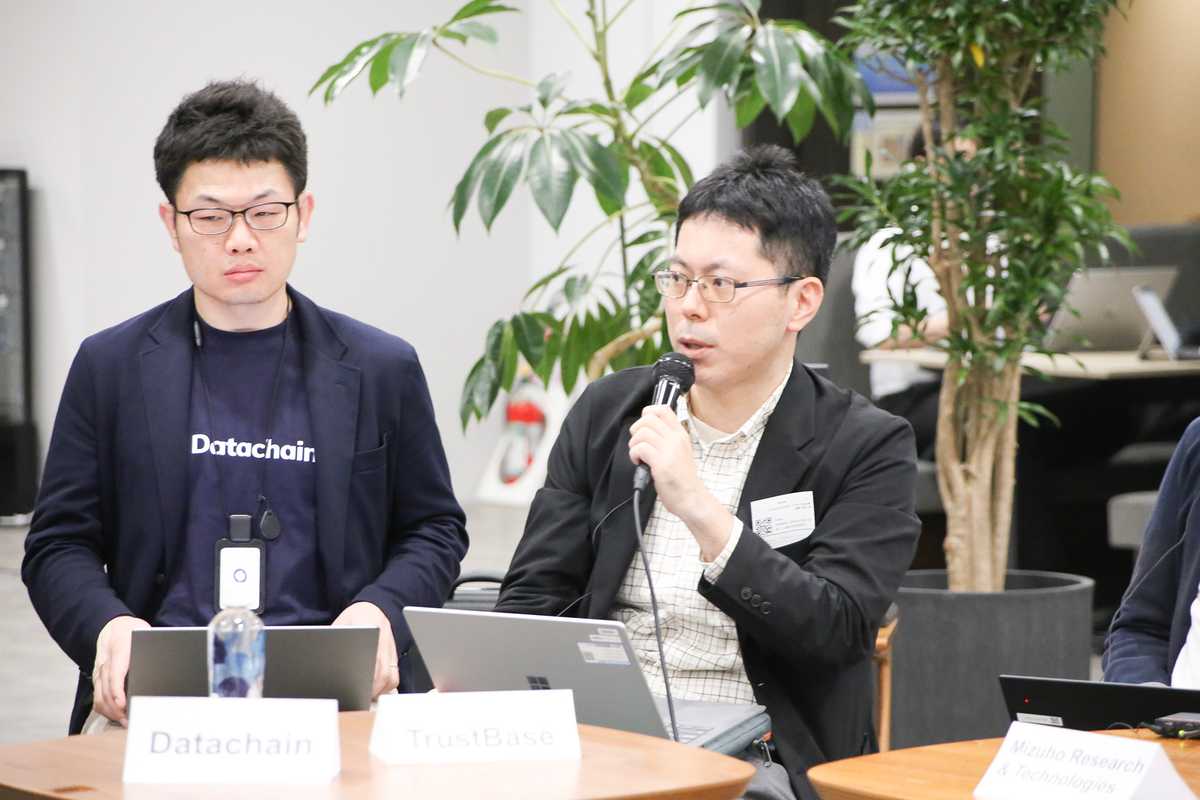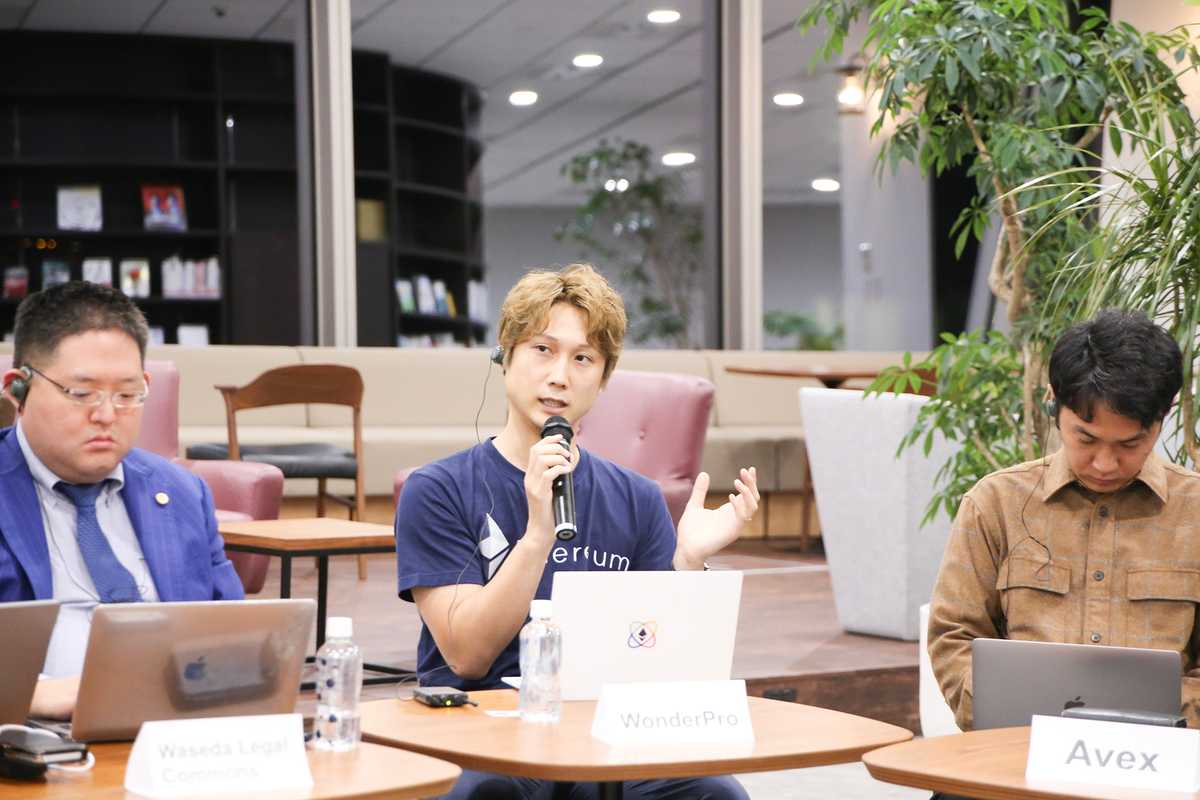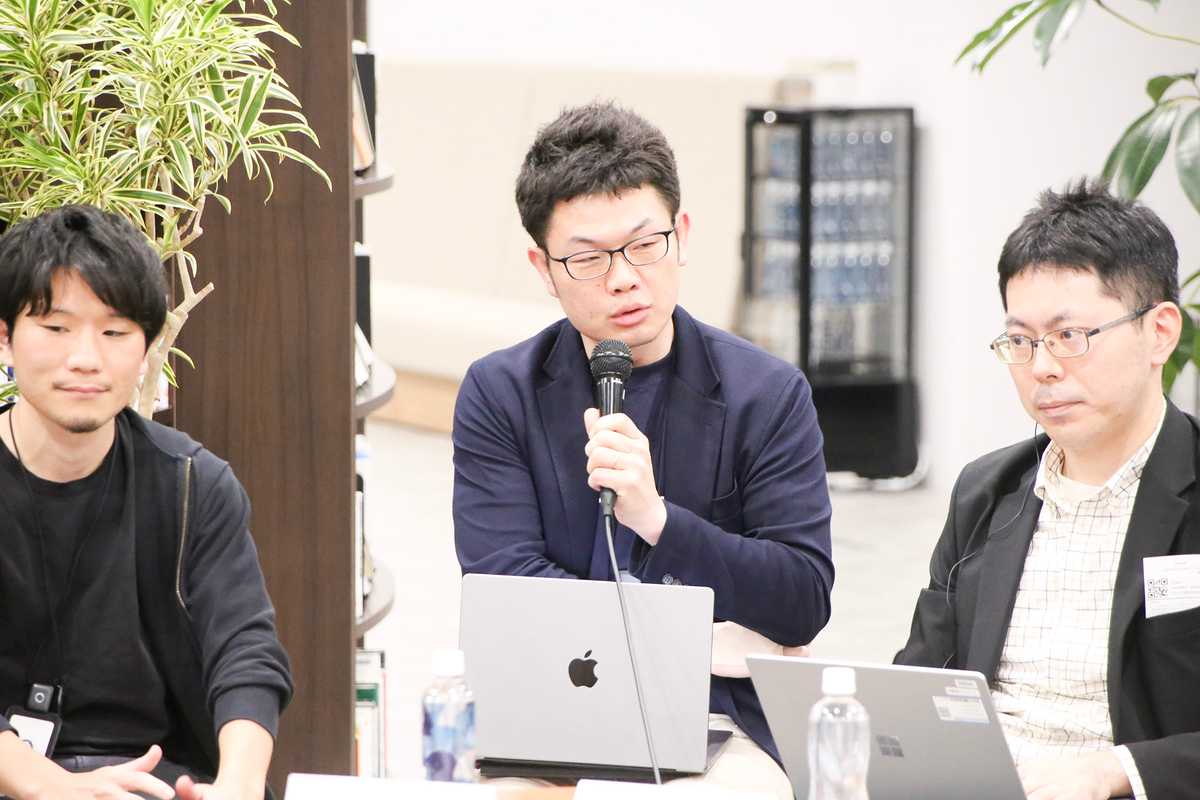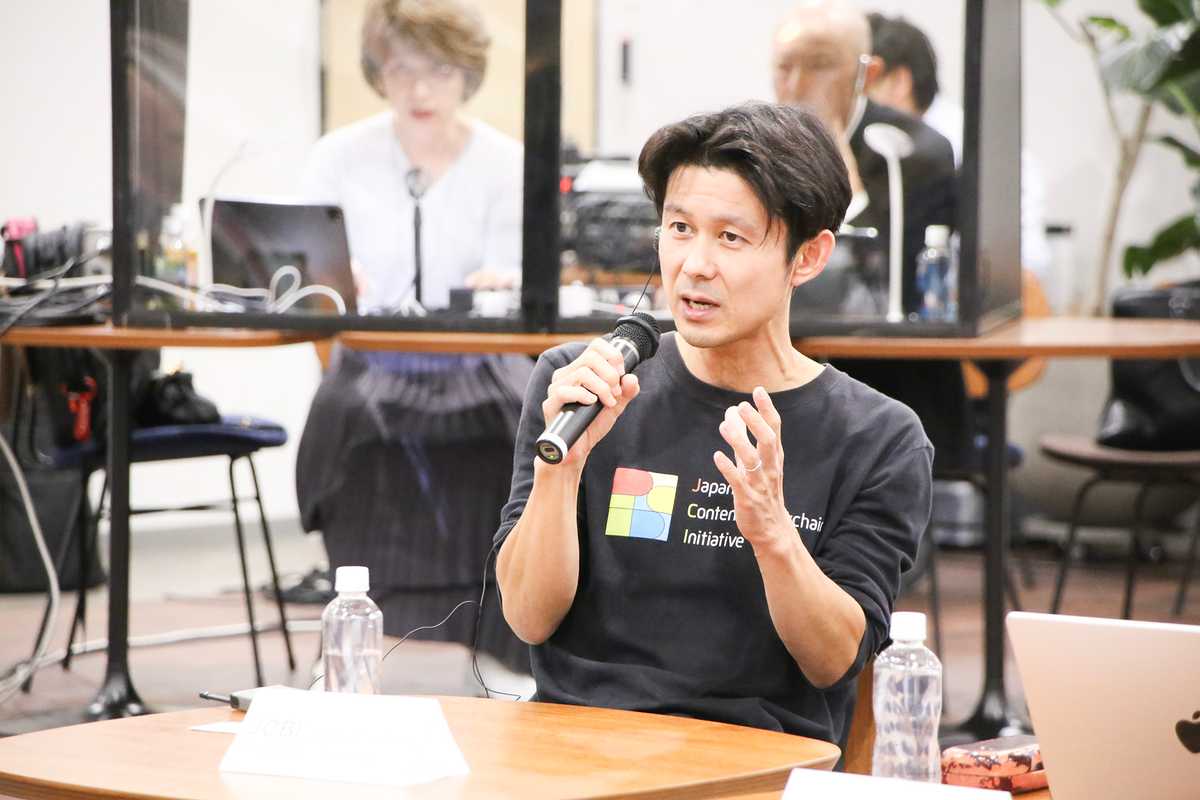The "Enterprise Ethereum Invitational Session" is an event focusing on the challenges and future possibilities of utilizing blockchain in business. -part 1-
Event Overview
At the Enterprise Ethereum Invitational Session held in October 2023, discussions were conducted on the themes of "Challenges in Business Utilization of Blockchain" and "Goals Pursued through the Use of Blockchain."
Many members who participated in the Enterprise Ethereum Stage held in April 2023 gathered, making it a highly meaningful discussion.
Representative of the Enterprise Ethereum Alliance Japan Chapter. Previously at IBM Japan, responsible for developing large-scale search engines for Rakuten and Lycos. Later, oversaw online game development spanning Japan, the US, and Korea; provided technical support to a top team in the Amazon Robotics Challenge; supplied AI learning simulators to Honda; and supervised cloud robotics development at NEDO. Representative of the blockchain community Blockchain EXE. Currently advancing the development of the humanoid AI platform "LUDENS". Instructor for Stanford University's 2018 AI Special Lecture. Former Visiting Researcher at the University of Electro-Communications. CEO of Couger Inc.
Ishii: Thank you all for gathering here today. While some of you attended the Enterprise Ethereum Stage in April, we also have newcomers joining us. I hope we can engage in discussions on the challenges and future possibilities of blockchain business utilization from various perspectives.
The first half of the discussion will focus on "Challenges in the Utilization of Blockchain in Business," while the second half will explore "What Goals Are We Aiming for with Blockchain Utilization." Through this dialogue, we aim to understand the challenges from the perspective of EEA and provide support to address them. Now, let's start with comments from Dan.
Executive Director of the Enterprise Ethereum Alliance (at the time of the event). Renowned expert in web standardization. Collaborates with EEA's Board of Directors, Technical Working Groups, Task Forces, and Member Community to drive Ethereum innovation and adoption. Action-oriented leader supporting the construction of blockchain ecosystems, serving as a ConsenSys Blockchain Standard Architect, and contributing to standardization efforts enabling enterprises to leverage the potential of blockchain. Holds a Ph.D. in Computer Science.
Dan: First, I'd like to share a bit about my background. I'm the Director at EEA and hold a Ph.D. in Computer Science with a long history in networking. While I previously worked in standard consulting, I returned to my technical roots in 2017 and focused on machine learning technologies. I believe that technology and computer science are the most impactful in people's daily lives. My goal is to help everyone, and since the pandemic, technologies like Zoom have been made possible by the computer science techniques you all use today.
I joined Ethereum Space in 2018 and transitioned to EEA in 2020. EEA, a U.S.-based non-profit formed in 2017 to support Ethereum technology adoption, was initially a very young public mainnet. It wasn't suitable for businesses, and the community didn't want it to be. In fact, when businesses wanted to adopt Ethereum technology, they were often ridiculed or scolded. However, Ethereum has changed in recent years. It can now provide capabilities it couldn't before, such as privacy permissions and performance.
We're setting standards in this field, and most of our work is related to the public Ethereum. There are also cryptocurrency-related aspects. Initially, Ethereum didn't consider things like theory and foundation. Over the past few years, I've focused on improving relations with the Ethereum Foundation. We've started having discussions and collaborating directly. EEA is discussing the most important next steps.
One challenge is raising awareness. Attending Ethereum conferences, you can feel the excitement. I spoke with cutting-edge developers at a conference in Paris in July. One challenge for Ethereum adoption that was raised is the need for better wallets. Current wallets have room for improvement.
My colleague Tom Lyons, who handles corporate communications for our parent company, said we could adopt Ethereum functionalities in Zoom. As you know, students' work and technology are essential in Ethereum and other blockchains. I've spoken with people from the Crypto Valley Association.
I've had many discussions about Crypto Garage in various countries. Despite occasional setbacks in the blockchain field, I've had wonderful discussions during this period. People from Crypto Bank, Street Builder, and the Swiss Blockchain Association. I collaborated with regulatory authorities in Switzerland a few years ago to build frameworks. We shared great ideas and exchanged strategies to realize them.
Many of the challenges I heard were region-specific issues that local laws and regulations companies must deal with. When I talked with a well-known crypto venture capital firm, they said we wouldn't learn as much by meeting face-to-face, but through these experiences, I've realized the importance of actually speaking in person.
I spent 8 weeks visiting 12 cities such as Istanbul, Midland, Toronto, Lisbon, Berlin, Amsterdam, London, Dubai, Singapore, and Tokyo, gaining various connections and insights. Importantly, none of these cities are in the U.S.
At Ethereum Space, there's an issue with the ideologies and importance placed on U.S. companies. While the status of U.S. exchanges is well-known, there are larger groups around the world actually using technology to progress, there is much to learn from people outside the U.S. The reason I started this tour was to learn about the situation outside the U.S. and gather information.
Challenges in the Utilization of Blockchain in Business
Ishii: Let's move on to the first question then. What do you think is the biggest challenge in utilizing blockchain technology across enterprises?
There's a difference between theory and foundational technology. Just as the internet serves as a public infrastructure platform, what do you think are the challenges in becoming a trusted public platform that serves as the foundation worldwide?
Director of the Blockchain Entertainment Division at Square Enix Co., Ltd. Joined Square Enix in 2012 and worked as a Technical Director in the development of smartphone games or content. Later transferred to the business department responsible for negotiations and external relations related to various platforms, experienced as a department head. In parallel, produced "Asset-Making Million Arthur," the company's first NFT business, in 2021, continuing to the present.
Hata: I'm involved in producing products using blockchains other than Ethereum. Earlier, Dan mentioned the challenge of wallets. In Japan, when introducing new services, suddenly telling customers to use a wallet may not immediately convey its necessity. In the context of Web3 businesses like this, creating a wallet is often the first project. Customers need to feel the excitement and entertainment value of using the service before they understand the necessity of a wallet. It's only when the story becomes, "You need a wallet to use this service, which is interesting and entertaining," that they start to feel the need for a wallet. Then, even if AFTs are somewhat difficult, people will continue because it's entertaining.
While wallets pose a challenge, showing people what interesting things can be provided using blockchain technology and getting their consent shouldn't be such a high hurdle. Also, while speed is often discussed as an issue, having a very fast blockchain may not necessarily solve the problem. It's only when there are products that can leverage it that it becomes viable. Even if the speed is slow, if it's interesting, it will succeed. Therefore, business items such as experiences and entertainment are crucial, rather than focusing solely on speed.
Ishii: I see. Blockchain is becoming necessary even in supply chains. Yamashita-san, what are your thoughts on the challenges of blockchain utilization?
Section Manager at the Innovation Center, Technology Development Division, NTT DATA. Engaged in technical development and evaluation for the introduction of advanced technologies into business since joining the company. Started activities related to blockchain in 2016 and currently focuses on developing advanced use cases in the enterprise domain.
Yamashita: I believe there is a need to separate cryptocurrency from blockchain technology because blockchain technology is often overly associated with cryptocurrency.
Dan: Indeed, the association of blockchain with cryptocurrency is a prevalent issue and quite problematic. While cryptocurrency and financial services are undoubtedly one use case of blockchain technology, this prevailing image might hinder its adoption in supply chains and enterprises like yours.
Ishii: Sakamoto-san, what are your thoughts on the challenges of ID authentication in blockchain activities?
Senior Researcher at the Data & Security Research Institute, Trusted Internet Project, Fujitsu Limited. Engaged in research and development related to distributed network security since transferring to Fujitsu Laboratories in 2000. Since 2018, has been promoting research and development in privacy/security, especially for Decentralized Identity and blockchain interoperability technologies.
Sakamoto: I believe one of the challenges is the difficulty in conveying the benefits of blockchain's distributed theory. Even if we say, "Let's make the world global using NFTs," it's only when someone actually does it and the world becomes so that it will be understood. However, at the initial stage, the challenge is that people may not feel inclined to try it out in the first place.
Partner at Waseda Legal Commons law firm. Admitted to the bar in 2018. Member of the Tokyo Bar Association. Specializes in providing legal advice to venture companies, startups, small and medium-sized enterprises, and public institutions such as local governments. Services to companies range from general small and medium-sized business legal matters such as contract drafting/review and debt collection to wide-ranging consultations on the legality of business operations and business schemes. Adopts a client-centric approach, providing tailored services based on the status of the client company, and handles various consultations as an accessible lawyer. In recent years, has specialized in legal consultations related to cryptocurrency and blockchain, handling tasks such as business scheme development and drafting contracts/terms of use in cutting-edge fields like Web3.0 and NFTs.
Inamura: One of the challenges in utilizing blockchain is that experimentation has become difficult in various businesses. Until 2018, there were no regulations, and various experiments could be conducted. However, now regulations have become stricter, making it difficult for startups to experiment and innovate.
Not widely recognized, but regulations on personal data protection pose a significant obstacle. This is because in public blockchains, personal information can be visible and even leaked. Considering such future risks, public chains are avoided because they are perceived as difficult to use. When the aspect of not having one's value infringed upon by anyone becomes difficult, the discussion shifts to questioning why blockchain was being used in the first place.
Representative Partner at Waseda Legal Commons law firm. Fascinated by the potential of blockchain technology after visiting Estonia in 2016, he co-founded Kentaurus Works Co., Ltd. with engineers. He has been involved in the development of applications such as "BlockRecord," which allows anyone to create tamper-proof records on their smartphones using Ethereum, and "Electronic Seal," which implements electronic signatures also based on Ethereum. He serves as Vice Chair of the SSI/DID Subcommittee at the Japan Contents Blockchain Initiative. Leveraging his experience in implementing blockchain and cryptocurrencies in society, he provides legal advice considering the technical characteristics at the stage of societal implementation.
Kawasaki: The challenge with blockchain is that decentralized services may not provide support for users and post-processing that centralized services could offer. The allure of blockchain should be that while decentralized services may not offer those features, they provide something else in return. However, when that "something else" is not articulated or cannot be delivered, it becomes a problem, especially when negative news is widely reported, causing hesitation.
Specializing in cutting-edge technologies at Mizuho Research & Technologies, Kentaro Sakamoto conducts research on emerging technologies such as blockchain to uncover new value propositions. He also provides technical support for projects leveraging these advanced technologies.
Sakamoto: Designing services that resonate with end users and compel them to pay for value is challenging. It requires navigating through technical aspects, legal revisions, and more, making trial and error necessary to address the challenges.
Senior Manager, Smart Finance / Web3・Blockchain, Deloitte Tohmatsu Group. With experience in both the Tokyo and Manila offices of a foreign consulting firm, Kawaguchi currently focuses on consulting, product development, and alliance promotion in the blockchain/web3 domain. He has supported business strategy formulation and technology utilization in various industries including finance, manufacturing, and entertainment. Leveraging his global relations with overseas member firms and leading tech companies, he leads service provision with expertise in international affairs. Kawaguchi holds an INSEAD MBA and is a Fellow of the Society of Actuaries in the United States.
Kawaguchi: Another challenge, not yet mentioned, is key management. End users often struggle to determine where to store and record their keys when investing or managing their assets. This struggle, coupled with the anxiety of receiving no support in case of emergencies, persists. Additionally, as corporations increasingly use blockchain for large sums of cryptocurrency or fiat currency, key management with both security and convenience will become a challenge for businesses as well.
Technology Advisor at Avex Corporation. He has been involved in launching EC services at venture companies in Silicon Valley since 1999. Upon returning to Japan, he worked in system development at Hitachi and served as a product manager for entertainment businesses related to broadcasting and VOD at a Nasdaq-listed company for nine years. He furthered his career in overseas game publishing before assuming the position of Executive Officer at Avex Corporation in April 2019 and President and CEO of Avex Technologies Corporation in May 2019. On June 24, 2022, he left Avex and relocated to Singapore to establish MetaSolare for the creation of a decentralized entertainment ecosystem. He serves as the Co-CEO and COO/Co-Founder.
Iwanaga: For example, in the music industry, I think it's worth considering using blockchain to transfer the rights to songs from centralized entities to artists. This way, artists would receive money upfront, enabling them to produce music. While I think this is a good idea, the issue arises as to whether it definitively corresponds to valuable assets. Even if this hurdle is cleared, the next problem becomes ensuring that what has been disclosed isn't released to distributed users, which would render the business unviable.
In other words, while decentralization may make it easier to obtain upfront payment, achieving consensus to advance the business introduces a counteracting force. It's challenging for leaders to make decisions in such circumstances. When this happens, it's hard to understand why rights that were previously held should be relinquished. While relinquishing them may bring in money, if control is lost by having to constantly seek consensus, it may become difficult to see the point in doing so.
Ishii: I see, so the issue is that the benefits of relinquishing control aren't clear.
General Manager, Business Design Center, Trust Base Co., Ltd. (a wholly-owned subsidiary of Mitsui Sumitomo Holdings). After working in corporate sales, product development, and investment at Sumitomo Mitsui Trust Bank, he was dispatched to Georgetown University in the United States to research blockchain. Currently, he is involved in digital asset operations such as STOs and cryptocurrencies, as well as research on Web3 and token economies.
Ikeno: I'm involved in digital finance. It's challenging to determine where to apply new technologies and how to provide security and peace of mind when dealing with our customers' assets, as we are a financial institution. To address these concerns, we are conducting asset rewriting experiments using blockchain. Since banks face strict regulations, our subsidiary serves as an experimental ground. We're exploring ways to create interesting and secure environments by sometimes bypassing legal constraints and focusing on innovation. While AI, such as chatbots like GPT, can provide easy-to-understand outputs, blockchain technology is less straightforward, making it difficult to showcase its remarkable aspects. Therefore, I believe it's crucial to find ways to help people understand and appreciate the attractiveness of blockchain technology, similar to how they appreciate the benefits of pro bono or foundational backup technologies.
The CEO of MoA Co., Ltd. (formerly WonderPro Co., Ltd.). He is a former ballet dancer at the Lithuanian National Opera and Ballet Theatre. In 2020, he founded WonderPro Co., Ltd., specializing in developing and providing products and services to support performing arts, including ballet. Recently, he has been exploring the use of blockchain and NFTs in the art industry.
Yonekura: As a member of the EEA, I have opened a platform for selling NFTs using social media.
It might be a unique challenge for us, but when talking to artists, issues related to the rights of digital assets like NFT paintings arise. I strongly feel that the understanding of rights concerning digital assets, such as copyrights and ownership, is not yet widespread among the general public. Conversely, for those who might become customers, when NFT painting assets are created, although they are collectibles, the challenge lies in what happens next, such as where to display them or the inadequacy of platforms for them.
Business Planning Officer at Datachain Co., Ltd. After specializing in aerospace engineering at Tohoku University Graduate School, Otani worked at AGC Corporation, where he was involved in new market development, project management, and technical sales focusing on the European market. In 2017, he took on business development at the space startup ispace. Since July 2023, he has been in his current position at Datachain.
Otani: One of the challenges is the absence of killer use cases or killer apps. Blockchain technology is considered difficult even among the members here, and it's not something that everyone can easily understand. There are several hurdles to obtaining settlements in companies, and within that context, where not everyone knows about blockchain and, in fact, the majority of people don't, it's challenging to explain why one would need to use blockchain to bypass existing systems. I think the biggest challenge is the lack of clear use cases that answer why we need to use blockchain, especially when most people are unaware of it.
When it comes to use cases, I believe it's important to have logic such as when the investment will be recovered in terms of business, but personally, I think it's crucial to have cases that stir up emotions like "this would be interesting." Ultimately, decisions are made by humans, and we haven't reached the point where we make decisions based solely on logic. Instead, I believe the emotional aspect of "this would be interesting" is extremely important.
On a personal note, my previous job was at a private company aiming to conduct lunar exploration. While I was involved in business development, we struggled to raise funds for lunar exploration. We created stories about how your company's challenges could be solved, but what really made a breakthrough was when someone's daughter or granddaughter, who was the final decision-maker, found the idea of going to the moon interesting.
In all seriousness, I believe that if we can find killer use cases or killer apps that evoke emotions and can resonate not only with consumers but also with businesses, it could change things significantly.
Marketing & HR Lead at Datachain Co., Ltd. After working with multiple startups, I took on the launch and growth of new advertising delivery products at CyberAgent. Since 2018, I've been involved in Datachain from its founding stage, contributing broadly to areas such as business planning and business growth, leading to my current position.
Yoshida: Blockchain is being utilized in the flow of goods, but it has not been effectively applied in the flow of funds. This year, with the enforcement of revised fund settlement laws and the potential utilization of stablecoins, there have been significant developments. While blockchain is being partially utilized in business operations, the ability to conduct payments on the blockchain is a significant advancement. I believe that as various companies begin issuing stablecoins in the coming years, it will be crucial to see to what extent killer use cases are included.
The Representative Director of the Japan Content Blockchain Initiative (JCBI), a nonprofit organization. After graduating from the Department of Information Science at the Faculty of Science and Engineering at the Tokyo Institute of Technology, he joined a systems integration company. In 2008, he joined Hakuhodo, a Japanese advertising agency. In 2013, he was seconded to Hakuhodo DY Holdings, where he was involved in the development and operation of systems in the digital marketing field at the Marketing Technology Center. From 2018, he worked in the Business Development Department at Hakuhodo. In 2020, he launched the JCBI.
Ito: I hold two titles, one being with EEA Japan, and the other with the Japan Content Blockchain Initiative, which consists of around 70 content media companies. Today, in discussions with various content industry professionals, I see three main challenges with blockchain.
- Oracle Problem:
The trustworthiness of data recorded on the blockchain, known as the oracle problem, requires external trust when referencing data written on the blockchain. While virtual currencies represent a rare case of blockchain's societal application, virtual currencies are almost unique in that they don't face the oracle problem of trust. However, the oracle problem for tokens in the content industry, such as who guarantees token rights, or in logistics, such as who ensures the data tied to goods on the blockchain, involves more than just technology. It's also a matter of legal frameworks or industry rules, where industries are expected to uphold promises.
- Business Model:
While the initial business model of virtual currencies isn't simple, the exchange of virtual currencies, which involves exchanging items of value, is a relatively straightforward case model because it's a fee-based business that doesn't hold responsibility for products. However, the oracle problem mentioned earlier distinguishes content token services, where everyone can view the service provided by the issued tokens, from virtual currency trading companies. Companies incur costs to continue providing services based on promises made to address this oracle problem, but there's no clear business model for making money. In essence, if business models other than trading don't work, companies can't engage in economic activities. I'm sharing this because I also want to overcome this challenge.
- Slow Technological Progress:
A challenge across all blockchains, not just Ethereum, when aligning with economic principles is the slow pace of technological progress. This delay might stem from the difficulty in raising motivation to solve cases where issuing currency and earning revenue come first. Unlike in companies, where external evaluations such as meeting shareholder expectations or stock price changes exist, in the blockchain industry, I find it frustrating and embarrassing that we've been having the same discussions for years despite my love for this technology. By listening earnestly to voices from industries like the content and logistics sectors and accelerating the pace of technological improvement to ensure blockchain is usable in industries, regardless of its current state, I strive daily to prevent it from being forgotten.
Ishii: Thank you very much. Now that everyone has raised their concerns, Dan, do you have anything you'd like to pursue in the future?
Dan: It's been 15 years since Bitcoin and 8 years since Ethereum. Where do we stand now? When people understand the essence of what this technology is and what it can do, they say "amazing." Things all over the world should be replaced with blockchain technology. Yet, it hasn't happened for so long. That's why I'm talking to you now. That's why I'm discussing it with the Ethereum Foundation. Now is the time to bridge the gap. There have been ups and downs, but blockchain technology is now at a crossroads: it's either going to be adopted or declined. From the comments made today, I've noted several points.
【Privacy】
Germany is one of the few countries in the world where cash is still widely used. Even during the pandemic, people were reluctant to share personal information through payments, often displaying signs saying "No Eavesdropping." After speaking with several Germans, they mentioned that Japan is another country that values individual privacy. Therefore, I was looking forward to meeting everyone in Japan, where personal privacy is highly valued.
【Proving the Intrinsic Value of Blockchain Technology】
I've heard many people attempt to explain the value of blockchain technology. Some use the term "payments," while others use "reconciliation." However, the essential value of the technology has not been adequately explained in practical terms.
In many cases, value is demonstrated when problems arise. Personally, about ten years ago, there was a discrepancy between the balance of securities that could be confirmed online and the balance on paper statements. When I faxed the paper statements, \$5000 was the difference between the online balance, and what was credited. This is the essence for me. The records of securities firms must be accident-proof and cannot be adjusted or manipulated from either side.
I met with a high-ranking official from a Swiss asset management company. They offer structured financial products and custom financial products to investors in the Middle East and elsewhere. They actually conduct transactions using smart contracts based on blockchain technology. They are known for not getting out of bed for less than \$100,000, but the transaction amount doesn't matter with smart contracts. There may be disputes with clients that need resolution, but in reality, they are not necessary. This is because with smart contracts, the answer is already there, and both parties have already agreed on how the decision will be made. There's no need for arbitration or discussion. The only thing you can argue about is whether you made that transaction with your account. But if you didn't make the transaction, there is no transaction on the contract.
【Lack of Excitement】
Someone mentioned the lack of excitement, but what excites me in the creator economy is that there's no need to customize legal partnership agreements with every single partner. For example, let's take Amazon. Amazon is a provider of storage and computing power. It's not a store. They came up with a very simple plan. Amazon offered standardized legal contracts. The quality of the deposit protection provided by Amazon became sufficient, and most companies became comfortable depositing with Amazon even if they couldn't completely control their relationship with them. I see an opportunity here.
For example, suddenly presenting lending terms in-store for people without funds to make purchases could be a new business opportunity. Especially if you can do it without entering into customized partnership agreements with any party. This was the first success of Web2 brought about by the creation of APIs. I know that what was previously impossible due to the potential for disputes might now be possible in fields such as this.
We've discussed the challenges of using blockchain for business so far. Let's shift to the next topic: what goals are we aiming for with the use of blockchain?
Continued:Future Potential of Blockchain Business Applications
